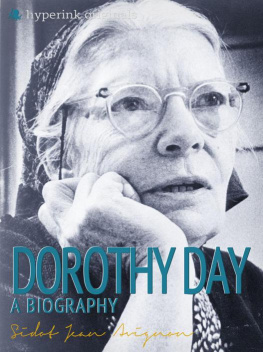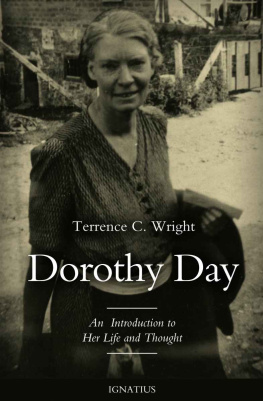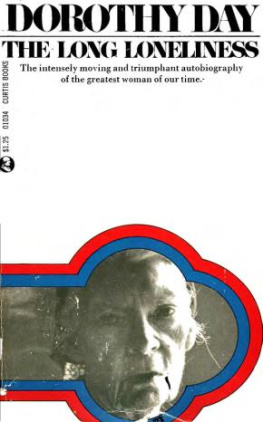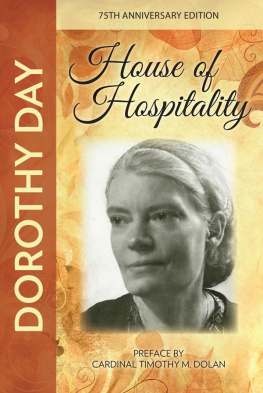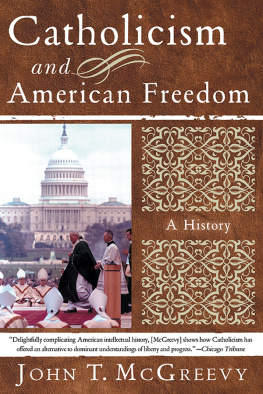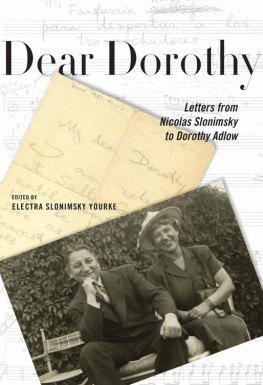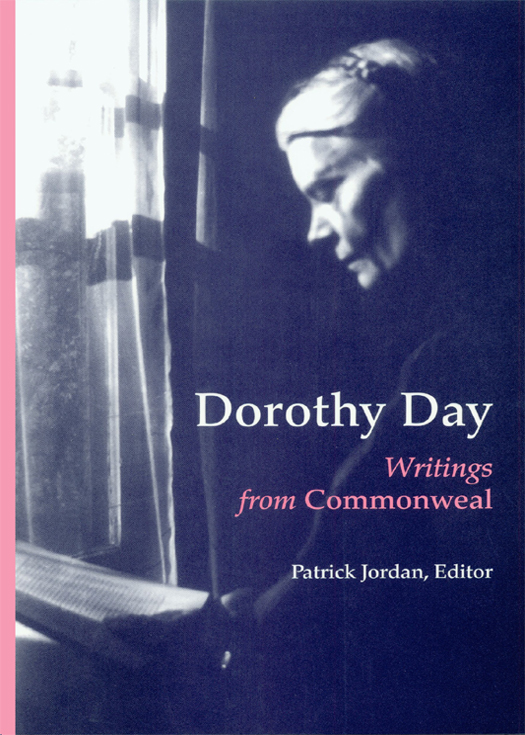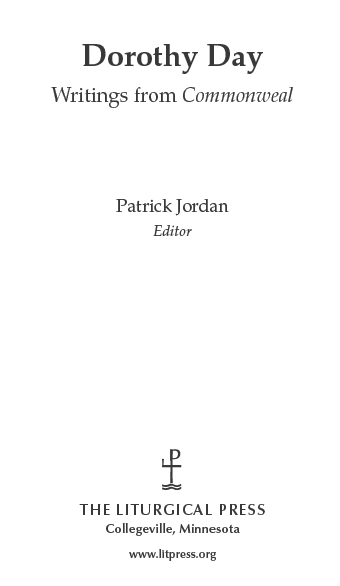Patrick Jordan - Dorothy Day: Writings from Commonweal
Here you can read online Patrick Jordan - Dorothy Day: Writings from Commonweal full text of the book (entire story) in english for free. Download pdf and epub, get meaning, cover and reviews about this ebook. year: 2017, publisher: Liturgical Press, genre: Detective and thriller. Description of the work, (preface) as well as reviews are available. Best literature library LitArk.com created for fans of good reading and offers a wide selection of genres:
Romance novel
Science fiction
Adventure
Detective
Science
History
Home and family
Prose
Art
Politics
Computer
Non-fiction
Religion
Business
Children
Humor
Choose a favorite category and find really read worthwhile books. Enjoy immersion in the world of imagination, feel the emotions of the characters or learn something new for yourself, make an fascinating discovery.

- Book:Dorothy Day: Writings from Commonweal
- Author:
- Publisher:Liturgical Press
- Genre:
- Year:2017
- Rating:3 / 5
- Favourites:Add to favourites
- Your mark:
Dorothy Day: Writings from Commonweal: summary, description and annotation
We offer to read an annotation, description, summary or preface (depends on what the author of the book "Dorothy Day: Writings from Commonweal" wrote himself). If you haven't found the necessary information about the book — write in the comments, we will try to find it.
Dorothy Day has been described as the most significant, interesting, and influential person in the history of American Catholicism. Outside The Catholic Worker (which she edited from 1933 to her death), Day wrote for no other publication so often and over such an extended periodcovering six decadesas the independent Catholic journal of opinion, Commonweal.
Gathered here for the first time are Days complete Commonweal pieces, including articles, reviews, and published letters-to-the-editor. They range from the personal to the polemical; from youthful enthusiasm to the gratitude of an aged warrior; sketches from works in progress; portraits of prisoners and dissidents; and a gifted reporters dispatches from the flash points of mid-twentieth-century social and economic conflict. Days writing offers readers not only an overview of her fascinating life but a compendium of her prophetic insights, spiritual depth, and unforgettable prose.
Chapters are The Brother and the Rooster, Guadalupe, Letter From Mexico City, Spring Festival in Mexico, Bed, Now We Are Home Again, Notes From Florida, East Twelfth Street, Review: Saint Elizabeth by Elizabeth von Schmidt-Pauli, Real Revolutionists, Review: The Catholic Anthology by Thomas Walsh, For the Truly Poor, Saint John of the Cross, Houses of Hospitality, The House on Mott Street, Tale of Two Capitals, Letter: In the Name of the Staff, King, Ramsey and Connor, It Was a Good Dinner, About Mary, Tobacco Road, Review: In the Steps of Moses by Louis Golding, Review: Our Lady of the Birds by Louis J.A. Mercier, Peter and Women, Letter: Things Worth Fighting For? The Scandal of the Works of Mercy, Traveling by Bus, Letter: Blood, Sweat and Tears, The Story of Steve Hergenhan, Priest of the Immediate, We Plead Guilty, Letter: From Dorothy Day, Pilgrimage to Mexico, In Memory of Ed Willock, Southern Pilgrimage, A.J., On Hope, and A Reminiscence at 75.
Patrick Jordan, managing editor of Commonweal, is a former managing editor of The Catholic Worker. He resides in Staten Island, New York.
Patrick Jordan: author's other books
Who wrote Dorothy Day: Writings from Commonweal? Find out the surname, the name of the author of the book and a list of all author's works by series.

